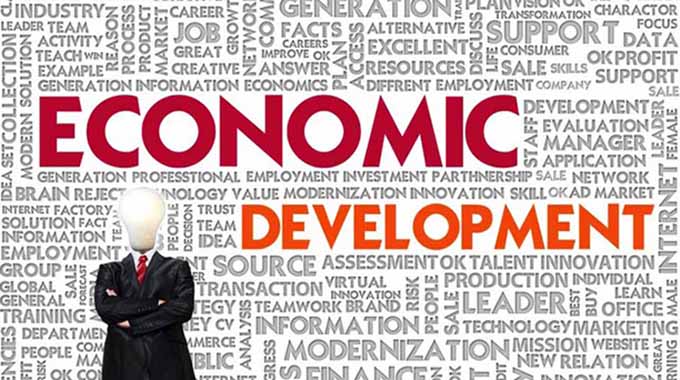Good politics a prerequisite for development

Tatenda Chinondidyachii Mashanda Correspondent
Questions always arise whether good politics fosters development or not.
There is considerable debate on whether to promote good governance or ensure development first, as this continues to be a matter of public debate.
In this piece, I look at the relationship between institutions and sound politics.
My point being, as much as capital is important for development, so also is the fundamental political culture surrounding that development, which will eventually make capital utilisation probable.
Economic development is a complex and contextual concept backed by technology, capital, natural resources, institutions and many other drivers.
With such contested concepts, we risk spending time on subjectivities, hence we will rely on the United Nations’ classification of economic development as a comprehensive economic, social, cultural and political process, aimed at constantly improving the well-being of the entire population.
Accordingly, humans are the central subject of development and should be active participants and beneficiaries of the right to development.
We shall focus on a pre-Smithian meaning of capital as money or saleable assets that could be used as collateral.
Adam Smith considered physical assets, machines and people as capital, an understanding which remains popular in today’s economics.
With an emphasis on the importance of “collaterisable property” Geoffrey Hogson argued that human capital could only be collateral if the humans involved were slaves.
Consequently, for capital to have an impact on development, there is need for a sound and feasible political culture which promotes the thriving of business.
Without this, increases in capital will be used in corrupt activities and rent seeking.
Apart from developing functional institutions, a good political culture creates an environment for the economy to thrive and a framework for progressive political change.
It is against this background that a sound political culture should be associated with effective governance, reduced bureaucracy, rule of law for better economic development.
These have a positive impact on the development of any nation and we sincerely could adopt such for Africa.
The lack of development on the African continent can be attributed to the ruling political elites’ lack of reform ownership and their descent into kleptocracy.
One cannot discredit the role of colonialism in some of the development inefficiencies in Africa, but there is a point where one has to take responsibility and acknowledge the obstruction of development from our own post-colonial recklessness.
The consolidation of power by most political elites in Africa after Independence largely contributed to the economic and political marginalisation of state resources.
With the use or rather abuse of state apparatus to neutralise their purported enemies, this processes had dire implications on the functionality of institutions and corporate governance.
Such obsessive culture led to the manipulation of government structures to accumulate personal wealth and divert national resources meant for development into individual wealth harbours.
With time, this mopped into a neo-patrimonial system of governance where formal rational legal state infrastructure or bureaucracy co-exist and is supplanted by informal governance (Nawaz 2008).
This system involves centralisation of power around an individual or individuals in which the regime owes power to those individuals.
The politicians exploit state resources to secure loyalty and often use state resources for personal gratification.
Michael Bratton argued that in a neo-patrimonial regime, the political chief executive and his agents exercise authority mainly through personal whim and material incentive rather than through ideology or the rule of law.
Within the state, the distinction between private and public interests is purposely blurred, and officials occupy bureaucratic posts less to deliver public goods and services than to acquire personal wealth and status.
With this reality, economic development remains a dream deferred, enrichment without development.
The argument here thus far is not to encourage blind pursuit to the importance of a viable political culture over capital, but an emphasis on how a good political environment is a requirement ahead of capital.
This is a simple anatomy of development without disregarding popular misconceptions about capital.
In fact, with regards to “Institutions, Capital, and Growth” Russel Sobel (2010) argued that increases in capital do not always lead to increased output.
This economic output ordinarily is what leads to economic development.
However, it is important to note that an increase in capital only leads to a positive output growth in countries with good institutions and viable political culture. – DRG Africa.
Tatenda is a DRG Fellow and a Wake Forest University graduate in Politics and International Affairs. He is an international relations, political economy, and geopolitics enthusiast who writes and researches on international politics, foreign policy and regional security issues. Find him on social media: @tatendamashanda







Comments